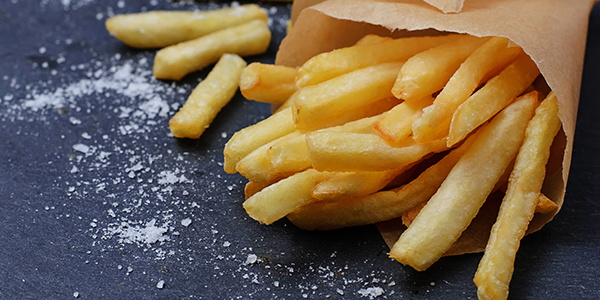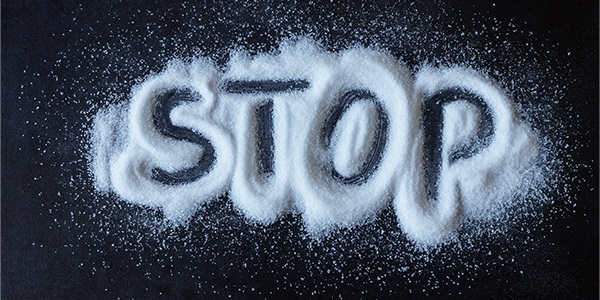How to Overcome Weight Fluctuations While Measuring Daily Weight at Home
Reviewed by: Dr. T S Deepthi Sarojini | Author: Manoja Kalakanti
When you are working towards a fitness goal, especially on weight loss, you may hop on to your weight machine daily and check that number on the scale. You may find that the weight you observed in the morning might be quite different from the weight you have observed in the night.

You also might find a significant difference in your weight from day to day, when you check your weight at different times. A weight shift of 5-6 pounds in a day or on a day-to-day basis is considered normal. Some people may even witness a ten or 20-pound change depending on their body size.
Reasons behind rapid weight fluctuations
Weight fluctuations could happen for multiple reasons which range from having a big meal in dinner which could lead to weight gain for a short period of time to sweating out for weight loss. At times, it is more and at times, it is lesser than before. Let’s take a look at its most common reasons:
1. It’s The Weight of Your Food and Water!
After checking your weight by the end of the day, you could be asking yourself, why did I gain 5 pounds in a day? The answer mostly is because of the food and liquids you have consumed during your day. If that’s the case, your weight in the morning before your first meal could be significantly different from your weight after dinner.
2. Depends on Your Calorie Burning!

Your body weight depends on the number of calories you consume in a day compared to the number of calories you burn in a day. If you consume more calories than you are burning, you tend to gain more weight. Conversely, If you are burning more calories than you are consuming, you tend to lose weight. It often observed that people tend to gain a lot more weight by Sunday, after a weekend of eating out and taking part in fatty indulgences.
3. You May Be Retaining More Water!
Water retention is one of the significant causes of weight fluctuations.
So, what causes water fluctuation?
i. High Sodium Intake

When you indulge in food, usually packaged food that is high in salts, you end up retaining water in your gut. Excess salt in your body leads to water retention.
ii. High Carb Intake
We love our carbs – bread, white rice, spaghetti, pasta, or white potatoes. A large intake of carbohydrates also results in water retention. For every gram of carbohydrates, your body retains 3 grams of water. The body converts carbohydrates received from food into glycogen molecules to provide energy for the cells. These excess glycogen molecules convert into fat, and the body retains water to store this fat around the muscles, liver, and fat cells.
iii. Dehydration
That’s right! It may not make sense on a surface level. But, the deeper reason is when you don’t consume enough water, your body conserves the available water to prevent dehydration.
4. Because of Your Workouts!

When you work out, you can lose water weight in the form of sweat. An average person may lose 700 – 1300 ml of fluid for an hour of exercise, mainly if that person is doing a high-intensity cardiovascular workout.
This temporary weight fluctuation will be corrected as the body gets replenished with more fluids post-workout. Weight training and strength training can cause weight fluctuation as the body regulates water output to repair micro-tears in the muscle tissues, which results in muscle building and therefore, higher muscle mass.
5. Your Medication Could Be The Cause!
Your medication for health conditions like diabetes, depression, blood pressure, migraines, or seizures could cause you to gain weight. Such medicines may result in water retention or metabolic changes or may increase your appetite.
Diabetic medicine like insulin and sulfonylureas, Antipsychotic medicine like haloperidol and lithium, Antidepressant medicine like amitriptyline and paroxetine, and blood pressure medicine like propranolol and beta-blockers could cause you to gain weight.
6. Your Alcohol Consumption!

Alcohol is diuretic in nature. Therefore it causes you to urinate more than usual as you consume fluids, and it causes a fluid imbalance in your body. Your body also takes a longer time to process alcohol, and this slows down your digestion.
A combination of these factors results in greater water retention, and may not be counting these extra calories in alcohol. Therefore, consuming high levels of alcohol regularly could spike your weight in a short span of time.
7. Some more factors
Urine and stools could play a minor role in your daily weight fluctuations. Research shows that an average person’s faecal remains could weigh from 125 – 180 grams per day.
Menstrual cycles in women could impact their eating patterns as they may have more cravings before or during their cycle. Extra fats and carbs consumed before your menstrual cycle will result in water retention and could undo a week’s efforts if you are working on weight loss.
Illness or medical conditions could be the reasons for your weight fluctuations. Diabetes, Cushing Syndrome, an underactive thyroid gland, and polycystic ovary syndrome are some of the medical conditions that cause weight fluctuations.
How Can I Stop My Weight Fluctuation?
Weight fluctuations can be controlled in the following mentioned ways:
Cut Back on Salt

Your excess consumption of sodium mostly comes indulging in packaged and processed foods. Avoiding such foods will bring your sodium levels back to normal, avoiding unnecessary water retention.
Have a Healthy Balanced Diet
A balanced diet with healthy proportions of carbohydrates, protein, and fats will keep you fit and away from unhealthy weight fluctuations. Include fruits and vegetables in your diet to get essential micronutrients and fiber. If your sodium levels shoot up, you can add foods rich in potassium and magnesium to balance out the excess salt.
Stay Hydrated

Keep replenishing your body with sufficient water and fluids. Staying dehydrated results in water retention and causes weight fluctuation.
Balance Energy Input and Output
Make sure you are burning as many calories as you are consuming. Avoid caloric excess and high caloric deficits. The best way to keep this up is to eat in moderation and exercise daily.
When and How to Weigh Yourself?

The key is to weigh yourself at the same time every day. For example, weigh yourself before breakfast, after emptying your bladder and bowels, to factor out urine and faecal weight, every day, consistently or weigh yourself after breakfast, to factor in food weight, every day, consistently. This way, you can be consistent with deviation factors like food weight or stool weight.
Use a weight scale (machine) as a standard method of measuring. You can also use Body Mass Index (BMI) to estimate whether a person’s weight is proportionate to his/her height. It is calculated by dividing weight (in kilograms) by the square of the height (in meters). You can use weight circumference as one of the measurement standards, especially if you are on a weight loss transformation. Body fat percentage is an accurate and useful method for keeping track of the excess fat (%) in your body.
Conclusion
There is no such thing as ‘base weight’ of your body. Your body weight goes through minor fluctuations resulting from the food and water weight in your body. Water retention from unhealthy food habits, dehydration, and medication is one of the significant causes of weight fluctuations. Correcting these unhealthy habits will stabilize your weight to a reasonable extent. When you notice rapid weight fluctuations due to medication, consult your physician, who may show you a way forward with a change in medication or through dietary and lifestyle changes.
Frequently Asked Questions
1. What causes weight fluctuation?
Ans: Weight Fluctuations are caused by many reasons. It can be exercise, medication, menstruation cycle, alcohol intake and illness.
2. Is weight fluctuation normal?
Ans: Yes, weight fluctuations are normal unless you are on any medication.
3. Can dehydration cause fluctuation in weight?
Ans: Yes, dehydration can cause fluctuations in weight. When you do not consume enough water, it becomes difficult for your body to burn calories. Thus, if a few hours ago you weighed less, now there are chances that you may weigh more. Drinking enough water can help reduce weight fluctuations.
4. Why do we notice a fluctuation in weight when we work out?
Ans: Weight fluctuations in the body with exercise may happen because the body starts to build muscle. In this process, the body adjusts its water output to accommodate the increased physical demand.
5. What kind of medicines can cause weight fluctuation?
Ans: Your medication for health conditions like diabetes, depression, blood pressure, migraines, or seizures could cause you to gain or lose weight.
6. Can we observe fluctuation in weight due to water retention in the body?
Ans: Water retention does cause weight fluctuation. Factors like sodium intake retain water in the body for a longer period of time. This can cause weight fluctuation.
7. What medical conditions can cause weight fluctuation?
Ans: Health conditions like diabetes, thyroid, stress, blood pressure, cholesterol, migraines or seizures could cause weight fluctuations.
8. How can we stop the fluctuation in weight?
Ans: Weight fluctuation can be controlled by eating a healthy, balanced diet followed by regular exercises and staying hydrated.
9. Can weight fluctuations improve if we reduce the salt intake?
Ans: Reducing salt intake may help in reducing weight fluctuations as it will prevent water retention.
10. What are the key points to remember in order to improve weight fluctuation?
Ans: To improve your weight fluctuations, you should weigh yourself before/after having breakfast and after emptying your bladder and bowels. This will help you understand the food weight that causes weight fluctuations in your body.

Manoja Kalakanti